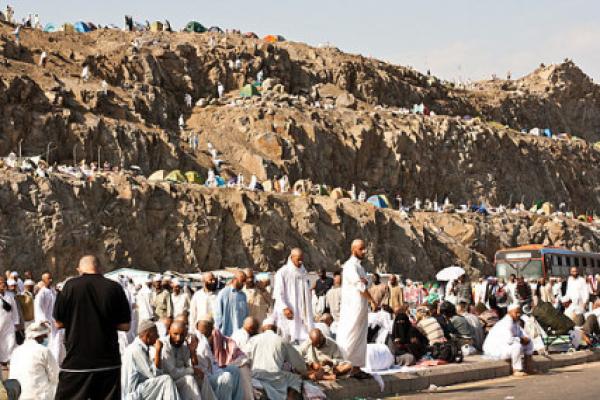The annual pilgrimage to Mecca, known as the hajj, presents a gantlet of health challenges. This year’s pilgrimage, which falls Oct. 13-18, is no different.
Of particular concern is the Middle East Respiratory Syndrome coronavirus, which was first reported in Saudi Arabia last year. At least 120 cases have been reported in the country, including 49 deaths, according to the World Health Organization and Saudi officials.
Each year, hundreds of pilgrims die of heart attacks, flu, meningitis, and other health problems.
MERS, which can cause coughing, fever, and pneumonia, has been reported in other Persian Gulf countries, France, Germany, Italy, Tunisia, and Britain, too.
More than 3 million pilgrims made hajj last year, including 1.7 million people from outside Saudi Arabia. This year the Saudis are issuing fewer hajj visas, although close to 3 million people are expected, including more than 14,500 American pilgrims.
Saudi officials have stepped up testing for the disease and will provide MERS vaccines. Each year, the gulf nation sets up additional hospitals and isolation rooms in Mecca, including 22,000 health workers and 141 clinics at holy sites this year.
Despite these measures, a spokesman for the Embassy of Saudi Arabia in Washington, D.C., said pilgrims need to take their own precautions, such as using masks, hand sanitizer and disposable tissues.
“It behooves those who come to follow basic sanitary protections, but you still have to remind people,” said Nail Al-Jubeir, the spokesman.
In past years, Saudi health officials dealt with deadly viruses such as SARS in 2012 and the swine flu in 2009. Many pilgrims pick up viruses and pass them on to others when they return home.
“People come from all over the world, from countries with epidemics of polio, with yellow fever, meningitis, many things,” said Al-Jubeir. “Anything that can spread is an issue.”
Omar Sacirbey writes for Religion News Service. Via RNS.
Got something to say about what you're reading? We value your feedback!
